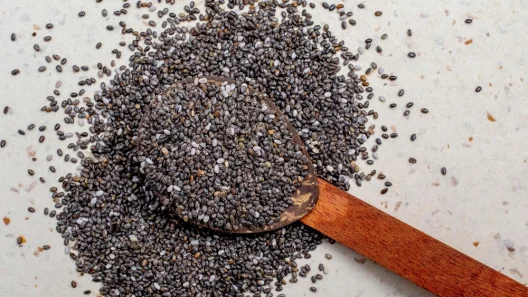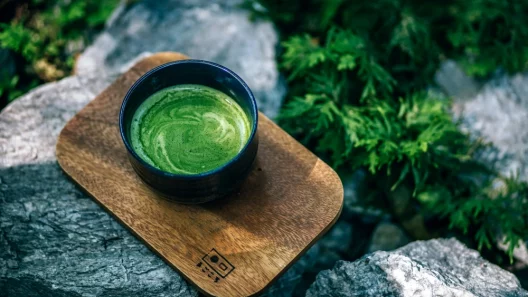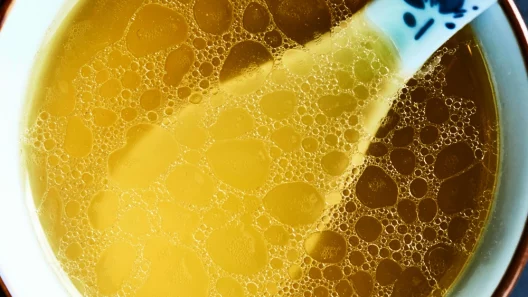Fermented superfoods have taken the wellness world by storm in 2025, emerging as nutritional powerhouses in an era increasingly focused on gut health and microbiome science. These traditional foods, transformed through ancient preservation techniques, offer more than just extended shelf life – they deliver beneficial bacteria and bioactive compounds that modern science is only beginning to fully understand. The growing interest in fermented foods reflects a broader shift toward holistic health approaches that recognize the profound connection between gut health, immunity, and overall wellness .
At MyGreenRemedy, we believe in combining traditional wisdom with modern scientific understanding to support your health journey. This comprehensive guide explores the world of fermented superfoods, examining the evidence behind their benefits and providing practical advice for incorporating them into your daily routine. From tangy kimchi to creamy yogurt, fizzy kombucha to earthy miso, we’ll uncover how these foods support your gut ecosystem and contribute to overall health.
The Science of Fermentation & Gut Health
The Fermentation Process Explained
Fermentation is a natural metabolic process where microorganisms like bacteria and yeast convert carbohydrates (sugars) into alcohol, gases, or organic acids. This ancient preservation method not only extends the shelf life of foods but also enhances their nutritional profile and digestibility. There are two primary fermentation methods: wild fermentation (relying on naturally occurring environmental microorganisms) and culture-dependent fermentation (using specific starter cultures) .
During fermentation, microorganisms produce various bioactive compounds including peptides, polyphenols, and short-chain fatty acids that contribute to both the unique flavors and health benefits of fermented foods. The transformation that occurs during fermentation often makes nutrients more bioavailable, for instance, the fermentation of soybeans to create tempeh increases the availability of isoflavones and breaks down phytic acid, which can inhibit mineral absorption .
How Fermentation Creates Probiotics and Beneficial Compounds
The most celebrated products of fermentation are probiotics – live microorganisms that, when consumed in adequate amounts, confer health benefits to the host. The World Health Organization defines probiotics as “live microorganisms which when administered in adequate amounts confer a health benefit on the host” . Fermented foods can contain diverse communities of these beneficial bacteria, though the specific strains and quantities vary considerably between products .
Beyond probiotics, fermentation generates other valuable compounds:
- Short-chain fatty acids (SCFAs) like acetate, propionate, and butyrate that support colon health and have systemic effects
- Bioactive peptides with antioxidant, antimicrobial, and blood pressure-regulating properties
- Enhanced vitamin content, particularly B vitamins and vitamin K2
- Reduced anti-nutrients like phytic acid that can interfere with mineral absorption
The Gut Microbiota: Your Inner Ecosystem
Your gut microbiome consists of trillions of microorganisms – bacteria, viruses, fungi, and other microbes that reside primarily in your large intestine. This complex ecosystem functions like an additional organ in your body, influencing not just digestion but also immune function, mental health, metabolism, and more .
A healthy gut microbiome is characterized by diversity – a wide variety of different microbial species and balance between beneficial and potentially harmful microbes. The microorganisms in fermented foods can interact with your native gut microbiota in several ways: some may temporarily colonize the gut, while others influence the environment through their metabolic activities or by stimulating immune responses .
Research has shown that the gut microbiome can affect numerous aspects of health:
- Digestion and nutrient absorption: Gut bacteria help break down complex carbohydrates, produce certain vitamins, and facilitate mineral absorption
- Immune function: Approximately 70-80% of immune cells reside in the gut, where they interact with microbes
- Mental health: The gut-brain axis allows bidirectional communication between the gut and brain through neural, endocrine, and immune pathways
- Metabolic health: Gut microbes influence energy metabolism, blood sugar regulation, and fat storage
Top Fermented Superfoods for Gut Health
Kimchi: The Korean Fermented Vegetable Delight
Kimchi, the spicy fermented vegetable dish that is a staple of Korean cuisine, typically features napa cabbage, radishes, scallions, and an array of seasonings including chili pepper, garlic, ginger, and fish sauce. During its fermentation, diverse communities of lactic acid bacteria develop, including species of Lactobacillus, Leuconostoc, and Weissella .
Health benefits and nutritional highlights:
- Rich in probiotics that may help improve digestive function and reduce inflammation
- Contains antioxidant compounds from garlic, ginger, and chili peppers that combat oxidative stress
- Provides vitamins A, B, and C, along with minerals like iron and calcium
- May support immune function and weight management
A 2022 review published in the Journal of Medicinal Food found that kimchi consumption was associated with improved lipid profiles, reduced inflammation, and better insulin sensitivity in human studies.
Yogurt: The Accessible Probiotic Powerhouse
Yogurt is perhaps the most widely consumed fermented food in Western diets, made by fermenting milk with specific bacterial cultures, typically Streptococcus thermophilus and Lactobacillus bulgaricus. Many commercial yogurts also contain additional probiotic strains like Lactobacillus acidophilus and Bifidobacterium species .
Health benefits and nutritional highlights:
- Improves lactose digestion by providing the enzyme lactase, making it better tolerated than milk by those with lactose intolerance
- Excellent source of high-quality protein, calcium, and vitamin D (when fortified)
- Regular consumption is associated with improved gut barrier function and reduced risk of gastrointestinal discomfort
- May support bone health and help maintain healthy blood pressure
Important note: Not all yogurts contain live probiotics, especially shelf-stable or heat-treated products. Look for phrases like “contains live and active cultures” on the label .
Kefir: The Diverse Probiotic Elixir
Kefir is a fermented milk beverage that originates from the Caucasus Mountains. It’s produced by adding kefir “grains” – a symbiotic combination of bacteria and yeasts to milk, resulting in a tangy, slightly effervescent drink. Kefir typically contains a wider diversity of probiotic strains than yogurt, often including both bacteria and yeasts .
Health benefits and nutritional highlights:
- Contains up to 30-50 different microbial strains, potentially offering broader benefits than single-strain probiotics
- The fermentation process significantly reduces lactose content, making it well-tolerated by those with lactose sensitivity
- Rich in bioactive compounds including peptides, exopolysaccharides, and organic acids that support gut health
- Shown in some studies to have antimicrobial, anti-inflammatory, and immune-modulatingproperties
A 2021 systematic review published in Nutrition Reviews concluded that kefir consumption shows promise for improving lactose digestion, modulating the gut microbiota, and potentially exerting positive effects on metabolic health.
Sauerkraut: Simple Fermented Cabbage
Sauerkraut, fermented cabbage is one of the simplest fermented foods, requiring only cabbage and salt. During fermentation, naturally occurring lactic acid bacteria convert the sugars in cabbage into lactic acid, which acts as a natural preservative and gives sauerkraut its characteristic tangy flavor .
Health benefits and nutritional highlights:
- Provides both probiotics and prebiotic fiber that support beneficial gut bacteria
- Rich in vitamin C and vitamin K, along with various antioxidants
- Contains isothiocyanates from cabbage that may have anti-cancer properties
- The fermentation process enhances the bioavailability of nutrients
When purchasing sauerkraut, look for refrigerated varieties that mention “raw,” “unpasteurized,” or “naturally fermented” on the label, as pasteurization kills the beneficial bacteria .
Kombucha: Fermented Tea with Antioxidant Benefits
Kombucha is a fermented tea beverage made by adding a symbiotic culture of bacteria and yeast (SCOBY) to sweetened tea. During fermentation, the microbes produce various organic acids, enzymes, and trace amounts of alcohol, resulting in a slightly sweet, slightly tart, effervescent drink .
Health benefits and nutritional highlights:
- Contains antioxidants from tea that may help combat oxidative stress
- Provides organic acids like acetic acid and gluconic acid that may support detoxification processes
- May have hepatoprotective effects according to some animal studies
- The fermentation process produces compounds that may have antimicrobial properties
Note: Commercial kombucha can vary widely in sugar content, so check labels if you’re monitoring your sugar intake.
Miso & Tempeh: Plant-Based Fermented Options
Miso is a traditional Japanese seasoning produced by fermenting soybeans with salt and the fungus Aspergillus oryzae (koji). It comes in various colors and flavors depending on the fermentation period and other ingredients added. Tempeh is a traditional Indonesian food made from fermented, partially cooked soybeans that are pressed into a compact cake .
Health benefits and nutritional highlights:
- Miso is rich in protein, B vitamins, and minerals including manganese and zinc
- Tempeh provides complete protein (containing all essential amino acids), making it an excellent meat alternative
- Both contain isoflavones, plant compounds with antioxidant properties that may support heart health
- The fermentation process reduces anti-nutrients in soybeans and enhances mineral bioavailability
A 2020 study published in the Journal of Nutrition found that regular consumption of fermented soy foods was associated with a lower risk of mortality compared to non-fermented soy consumption.
Table: Comparison of Key Fermented Superfoods
| Food | Primary Microorganisms | Key Nutrients | Unique Benefits |
| Kimchi | Lactobacillus spp., Leuconostoc spp. | Vitamins A, B, C; capsaicin; fiber | Antioxidant, anti-inflammatory properties |
| Yogurt | Streptococcus thermophilus, Lactobacillus bulgaricus | Calcium, protein, vitamin D (fortified) | Improves lactose digestion, bone health |
| Kefir | Diverse bacteria and yeasts (30+ strains) | B vitamins, calcium, bioactive compounds | Broad-spectrum probiotics, antimicrobial effects |
| Sauerkraut | Lactobacillus spp., Leuconostoc spp. | Vitamin C, K; fiber; antioxidants | Simple formulation, prebiotic + probiotic combo |
| Kombucha | Acetobacter spp., Brettanomyces spp. | Antioxidants from tea, organic acids | Antioxidant support, potential liver protection |
| Miso/Tempeh | Aspergillus oryzae, Rhizopus spp. | Complete protein, isoflavones, minerals | Plant-based protein, cardiovascular support |
Want to learn more about Superfoods? Check out our Ultimate Guide to Superfoods for Everyday Health.
Health Benefits Beyond Digestion
Immune System Regulation
The gut-immune connection is well-established, with approximately 70-80% of immune cells residing in the gastrointestinal tract. The probiotics and bioactive compounds in fermented foods may help modulate immune function through several mechanisms :
- Enhancing gut barrier function: Probiotics can strengthen the intestinal lining, reducing “leaky gut” and preventing inappropriate immune activation
- Producing antimicrobial compounds: Beneficial bacteria produce bacteriocins and organic acids that inhibit pathogens
- Interacting with immune cells: Probiotics can modulate the activity of various immune cells, potentially reducing excessive inflammation
A 2021 study published in Cell found that a diet high in fermented foods increased microbiome diversity and reduced markers of inflammation more effectively than a high-fiber diet.
Gut-Brain Axis: Mood and Cognitive Support
The bidirectional communication system between the gut and brain, known as the gut-brain axis, allows gut microbes to influence neurological function, mood, and behavior. Fermented foods may support mental health through :
- Production of neuroactive compounds: Gut microbes can produce or influence the production of neurotransmitters like serotonin, GABA, and dopamine
- Reducing inflammation: Chronic inflammation is implicated in depression and other mental health conditions
- Modulating stress response: Some probiotics appear to influence the hypothalamic-pituitary-adrenal (HPA) axis, which regulates stress responses
A 2023 systematic review in Neuroscience & Biobehavioral Reviews concluded that fermented foods containing probiotics showed promise for reducing symptoms of anxiety and depression, though more research is needed.
Skin Health (Emerging Evidence)
The gut-skin axis represents another fascinating connection, with growing evidence that gut microbiome composition influences skin health. Potential mechanisms include :
- Reducing systemic inflammation: Chronic inflammation can exacerbate skin conditions like acne, eczema, and psoriasis
- Influencing oxidative stress: The antioxidants in many fermented foods may help protect skin from oxidative damage
- Producing skin-supportive nutrients: Gut bacteria produce biotin and other nutrients important for skin health
While the research is still emerging, a 2022 study in Dermatology and Therapy found that probiotic supplementation improved symptoms of acne and eczema in some participants.
How to Add Fermented Superfoods to Your Diet
Easy Ways to Incorporate Fermented Foods Daily
Incorporating fermented foods into your diet doesn’t require a complete dietary overhaul. Try these simple strategies:
- Start with breakfast: Add yogurt or kefir to smoothies or enjoy with granola and fruit
- Use as condiments: Add a spoonful of sauerkraut or kimchi to sandwiches, salads, or grain bowls
- Include in marinades and dressings: Use miso in marinades for tofu or meat, or create salad dressings with kefir or yogurt
- Enjoy as snacks: Have kombucha as a refreshing afternoon drink or enjoy yogurt with fruit as a snack
- Experiment with cooking: Use tempeh in stir-fries, or add miso to soups and stews (add after cooking to preserve probiotics)
Store-Bought vs Homemade Options
Both commercial and homemade fermented foods have their advantages:
Store-bought options:
- Advantages: Convenient, consistent flavor, often regulated for safety
- What to look for: Refrigerated products, “live and active cultures” on label, minimal additives and preservatives
Homemade options:
- Advantages: Cost-effective, customizable flavors, potential for broader microbial diversity
- Considerations: Requires attention to safety and hygiene, results can be variable
If you’re new to fermenting at home, sauerkraut is an excellent beginner project, requiring only cabbage, salt, and a jar.
Safety Considerations
While fermented foods are generally safe for healthy individuals, consider these precautions:
- Salt content: Some fermented foods (like traditional sauerkraut and kimchi) can be high in sodium, consider this if you have hypertension or salt-sensitive conditions
- Pasteurization: Many commercial products are pasteurized, which kills both harmful and beneficial bacteria. Unpasteurized products offer probiotic benefits but may carry slightly higher food safety risks
- Contamination: With homemade ferments, proper technique is essential to avoid contamination with undesirable microorganisms
- Specific health conditions: Those with compromised immune systems, histamine intolerance, or certain digestive conditions should consult a healthcare provider before adding fermented foods
FAQs
How much fermented food should I eat daily?
There’s no one-size-fits-all recommendation, but many experts suggest 1-2 servings daily for general health maintenance. A serving might be:
- 1 cup of yogurt or kefir
- 2-3 tablespoons of sauerkraut or kimchi
- ½ cup of kombucha
- 2 tablespoons of miso paste
Start with small amounts and gradually increase to allow your digestive system to adjust .
Are supplements as effective as food sources?
While probiotic supplements can be beneficial in specific circumstances, they lack the complex matrix of nutrients and bioactive compounds found in whole fermented foods. Fermented foods offer synergistic benefits beyond just probiotics, including prebiotic fibers, vitamins, minerals, and antioxidants. For general health maintenance, food sources are typically preferred, though supplements may be appropriate for targeting specific conditions under professional guidance .
Can people with IBS or sensitive stomachs eat fermented foods?
This depends on the individual. Some people with irritable bowel syndrome (IBS) tolerate fermented foods well and may even experience symptom improvement, while others find that these foods exacerbate symptoms, particularly those high in FODMAPs or histamines. Start with small amounts of low-FODMAP options like small servings of yogurt or kefir, and monitor your symptoms. Those with histamine intolerance may need to be cautious with fermented foods, as they can be high in histamine .
Do all yogurts contain probiotics?
No. Many commercial yogurts are heat-treated after fermentation, which kills the live cultures. Look for phrases like “contains live and active cultures,” “living cultures,” or specific strain information on the label. The National Yogurt Association’s “Live & Active Cultures” seal can help identify products that contain significant levels of live bacteria .
Conclusion
Fermented superfoods offer a delicious and evidence-supported approach to supporting gut health and overall wellness. From kimchi’s anti-inflammatory properties to kefir’s diverse probiotic profile, these traditional foods provide benefits that extend far beyond digestion to influence immunity, mental health, and potentially even skin health. As research in this field continues to evolve, one thing remains clear: regularly incorporating a variety of fermented foods can be a valuable strategy for nurturing your gut microbiome .
Remember that consistency and variety are key, rather than occasional large servings, aim for small, regular portions of different fermented foods. Listen to your body and adjust based on your individual tolerance and preferences. For most people, fermented foods can be a safe and valuable addition to a balanced diet.
For those interested in exploring other aspects of gut health, we invite you to read our articles on Probiotics for Gut Health: Evidence and How to Choose and Ayurvedic Herbs for Gut Health: Turmeric, Ginger & More available on our website.
Remember: While fermented foods offer numerous potential benefits, they are not a substitute for medical treatment when needed. Always consult with a healthcare provider before making significant dietary changes, especially if you have underlying health conditions.









